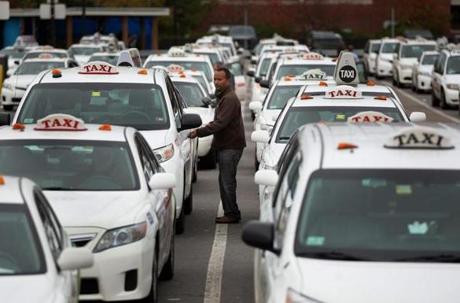 Jeddah, Oct 26: Taxi operators here say they would lose 60 percent of their revenue and may even have to close shop if women are allowed to drive in the city.
Jeddah, Oct 26: Taxi operators here say they would lose 60 percent of their revenue and may even have to close shop if women are allowed to drive in the city.
Saudi women have been pushing for the right to drive and many plan to get behind the wheel today to highlight their cause.
Ali Sayed, an Egyptian taxi supervisor in Jeddah, told Arab News that his firm would likely lose 60 percent of its customers.
“It is well known that many more women than men use our taxis. We depend on the revenue from women customers. Many taxi firms will close down if women are allowed to drive their own cars,” said Sayed.
Many taxi drivers have contracts with women to pick them up at home and drop them off at work or university. They make more than SR1,000 at the end of the month from these contracts.
Mukhtar Salem, a Yemeni taxi driver, told Arab News: “I have a contract to drop off two Saudi women every day at King Abdul Aziz University for SR1,500 a month. If they drive their own cars, I will lose this money.”
Mahmoud Abdul Shafi, an Egyptian taxi driver, told Arab News that taxi drivers would face a “real crisis” if women are allowed to drive. “We cannot depend on men customers who have no cars. It's easy for them to find friends to drop them off or to take a bus.”
“Other men use taxis on a temporary basis until they can buy their own cars. We have long term contracts with women because they have no other option and are dependent on us,” said Shafi.
Activists behind the “Oct. 26 Driving Campaign” have called on fellow Saudis to put the campaign's logo on their cars and urged women to learn to drive.
However, a spokesman from the Ministry of Interior said in a statement on Wednesday that “regulations in Saudi Arabia prohibit any action that disturbs social peace and opens the door for sedition and responds to the illusions of prejudiced intruders with sick dreams.”





Comments
Add new comment